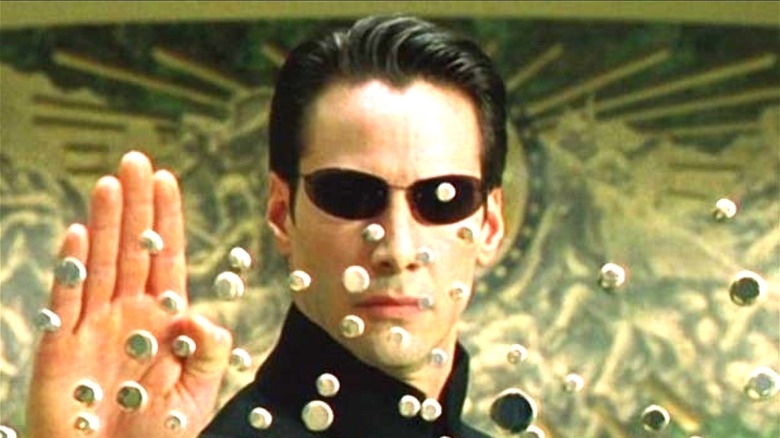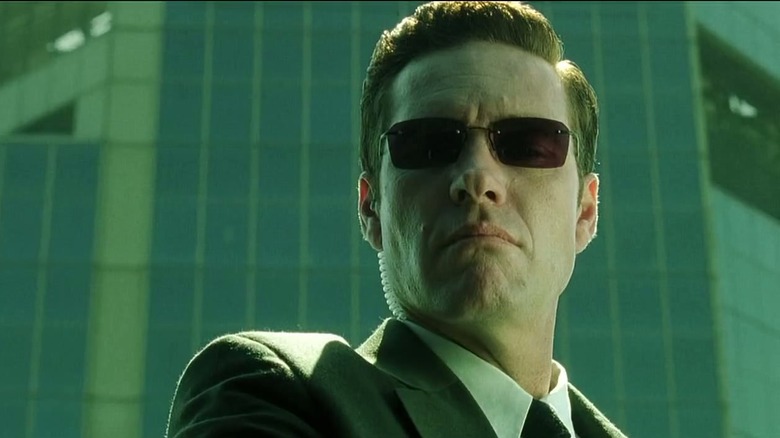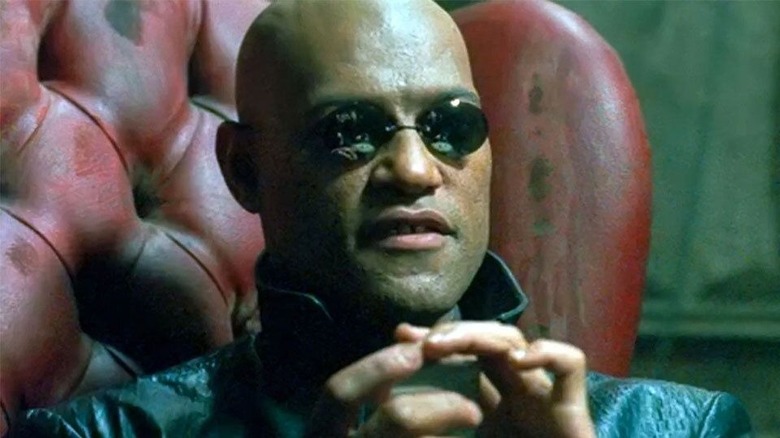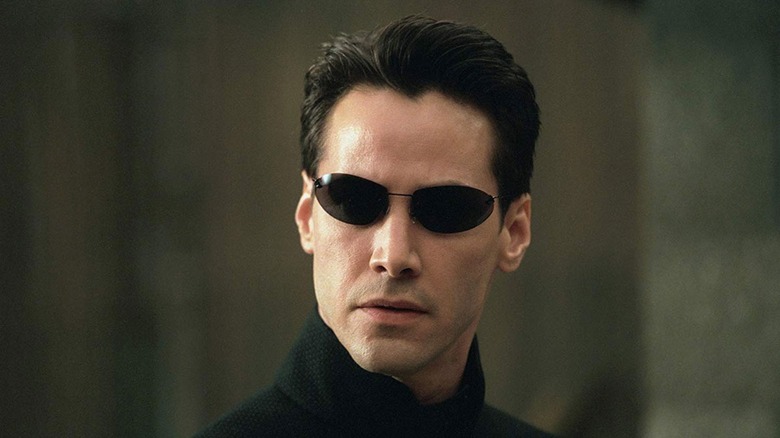The Ending Of The Matrix Explained
"The Matrix" is doubtless one of the most influential science fiction films of the last century. Blending influences from anime, martial arts films, religion, and more, co-creators Lana and Lilly Wachowski broke the action movie mold of the 1990s. Furthermore, they did so in a way that carried near-universal appeal. Now, the image of Neo bending backwards to dodge bullets is as iconic as Luke Skywalker piloting his X-Wing.
Even so, "The Matrix" still contains mysteries and messages that have yet to be uncovered by the discerning eye of film analysts. The ending of the film, in particular, is filled to the brim with themes ripe for decoding. More than anything, however, "The Matrix" is a story about transformation — about how a man named Thomas A. Anderson goes from a programmer and hacker to being Neo, humanity's last hope in a world on the brink of devastation. This is true both on the surface, and in the layers of meaning buried beneath.
On the surface, Neo's story is a religious allegory
Religion, or perhaps a better word for it might be faith, plays a big part in the development of "The Matrix's" plot and Neo's character. The prophecy of the One, a human with supreme, almost god-like power and control over the Matrix, is alluded to many times by Morpheus. In fact, it's the sole reason he pulls Neo out of the Matrix to begin with; he has been searching for the One his entire life because he believes — in spite of others' skepticism — that the One truly is humanity's last hope against the machines.
When Morpheus suggests to Neo that he is the One, Neo reacts with disbelief. However, the final stage of his character development comes when his views begin to align with those of Morpheus. In his final confrontation with Agent Smith, Neo displays abilities that would be impossible to others. This includes a deliberate Christian reference to Jesus' resurrection, when Neo spontaneously revives himself after suffering gunshot wounds that would be fatal to anyone else.
The Christian parallels do not end there, as the movie's conclusion sees Neo taking on the role of an enlightener. Much in the same way that Jesus (or any other prophet) might spread the gospel of their religion, Neo's responsibility to spread the truth about the Matrix and awaken those trapped within it is arguably more important than directly combating the machines. After all, his true goal is to free humanity and end the Matrix.
Neo's self-discovery is also a metaphor for transitioning between genders
Needless to say, it was big news when Lilly Wachowski revealed that "The Matrix" was fundamentally a trangender story years after its release (via Netflix Film Club). Though the movie makes no direct references to transgernderism, the Wachowskis (both of whom are male-female trans women) were still closeted at the time of its release in 1999. Neither had fully realized they were trans, yet years later realized they had inadvertently made a film that serves as an allegory for transitioning.
"The Matrix stuff was about the desire for transformation. But it was all coming from a closeted point of view," Lilly Wachowski said. "I don't know how present my transness was in the background of my brain as we were writing it, but it all came from the same sort of fire."
In this context, Neo's journey in "The Matrix," one of self-realization, serves as a loose allegory for transitioning. He moves from being Thomas A. Anderson to being the One similarly to how a trans person moves from identifying as one gender to another — often changing their name in the process just as Neo changed his own. Other aspects of the film — such as Neo's incongruity with the world around him being a parallel for body dysphoria — serve as additional allegories that more deeply describe the experience of transitioning. Such themes remain pervasive throughout the movie, but align well with "The Matrix's" more general, non-gendered presentation of transformation that popularized it.
These themes also work to set up later parts of the Matrix trilogy
If you thought that these ideas were exclusive to the franchise's first film, you were wrong. Though "The Matrix" trilogy's latter entries are more than controversial, it's hard to deny that the Wachowskis did a good job at keeping their theming consistent. Neo's transformative journey may have been complete by the end of the first film, but "Reloaded" and "Revolutions" continue to explore such themes through Agent Smith's character. As he goes from a simple program devoid of any sense of choice to a living, breathing human, and the antithesis of Neo's status as the One.
Likewise, the religious aspects of "The Matrix's" story are not ignored. Neo may have resurrected himself, but the Jesus parallels become even more apparent when he sacrifices himself at the conclusion of the trilogy. Quite literally, he dies to wipe the Matrix's slate clean and undo the damage done by the rampant Smith. In doing so, he manages to provide an avenue of peace for both man and machine.



